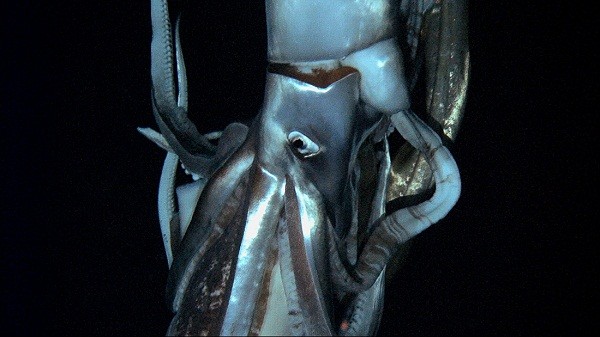
A new study has revealed that giant squids have little genetic variation, suggesting that they are one species.
Giant squids, the world's largest invertebrates, are deep-ocean creatures that belong to the family of Architeuthidae. They can weigh hundreds of kilograms and can grow up to 13 metres (43 feet). It is very difficult to spot squids as they are elusive and dwell deep in the ocean. The first time in which researchers observed a giant squid was in 2004. The first footage of a giant squid was released only this year by Japan scientists, who filmed it in its natural habitat in the North Pacific Ocean.
Although giant squids are found across the globe, no one has ever published details about their genetics until now. An international team of researchers collected 43 samples of giant squid tissue from across the globe. While some squids were found stranded on the shore, others were captured by trawlers. Some squids were also found in the stomach of sperm whales, the only predator of giant squids.
"Getting this material together was actually one of the hardest parts," biologist Thomas Gilbert, of the University of Copenhagen, told Science Now. "I'm not a cephalopod biologist, so in the beginning people were reluctant to give me these precious samples."
The scientists analyzed mitochondrial DNA (mDNA) found in small energy-producing structures called mitochondria. This DNA is different from the nuclear DNA - DNA which is present in the cell's nucleus.
The researchers were surprised to find that the genetic differences between individual giant squids were exceptionally low, despite their geographic range. This suggests that the giant squids are all one species.
It is not clear as to how the squids that are found worldwide have the same basic mitochondrial genomes. One possible explanation suggested by Gilbert is that the giant squids might have undergone a recent population explosion and the young squid larvae might have randomly dispersed via drifting across the globe. "There are huge unexplored questions," Gilbert told LiveScience.
Researchers are further planning to study to find out if there is something going on in the squid mitochondrial genome that has misled the researchers, the Science Now report said.
The findings of the study are published in the journal Proceedings of the Royal Society B.

















